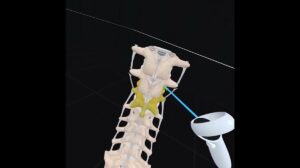Researchers at Clemson University are attempting to make a synthetic version of a proboscis, the tube-like mouth of butterflies and moths. The proboscis has many notable properties that make it a perfect candidate for inspiring medical device creation. In addition to its ability to uncoil and recoil over a million times in the insect’s lifetime, the proboscis is capable of working as both a sponge and a straw, making it an incredibly useful appendage for its owner. The mouthpiece is self-cleaning and has regenerative qualities that allow it to separate lengthwise down its center and then reconnect without loss of function.
If scientists could synthesize the fibers of this amazing appendage, they might be able to fashion tiny tools capable of administering drugs to very specific targets in the body, as well as cleaning up toxins from areas in the body that are difficult to access without a surgical procedure. On a microscopic level, this nano-technology could possibly enable doctors to probe the nucleus of a cell in search of patient-specific data to help them formulate a precise, custom-tailored treatment.
Click here for more information about this research from the College of Agriculture, Forestry and Life Sciences at Clemson University.




